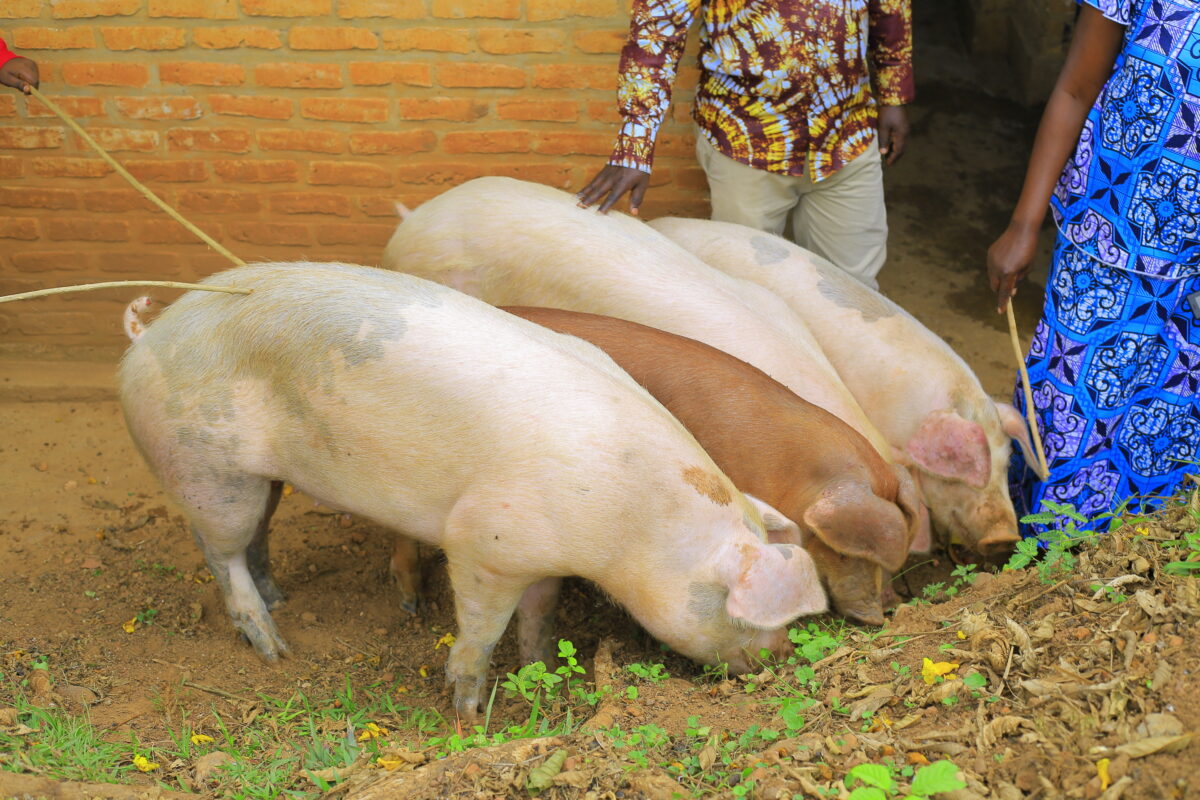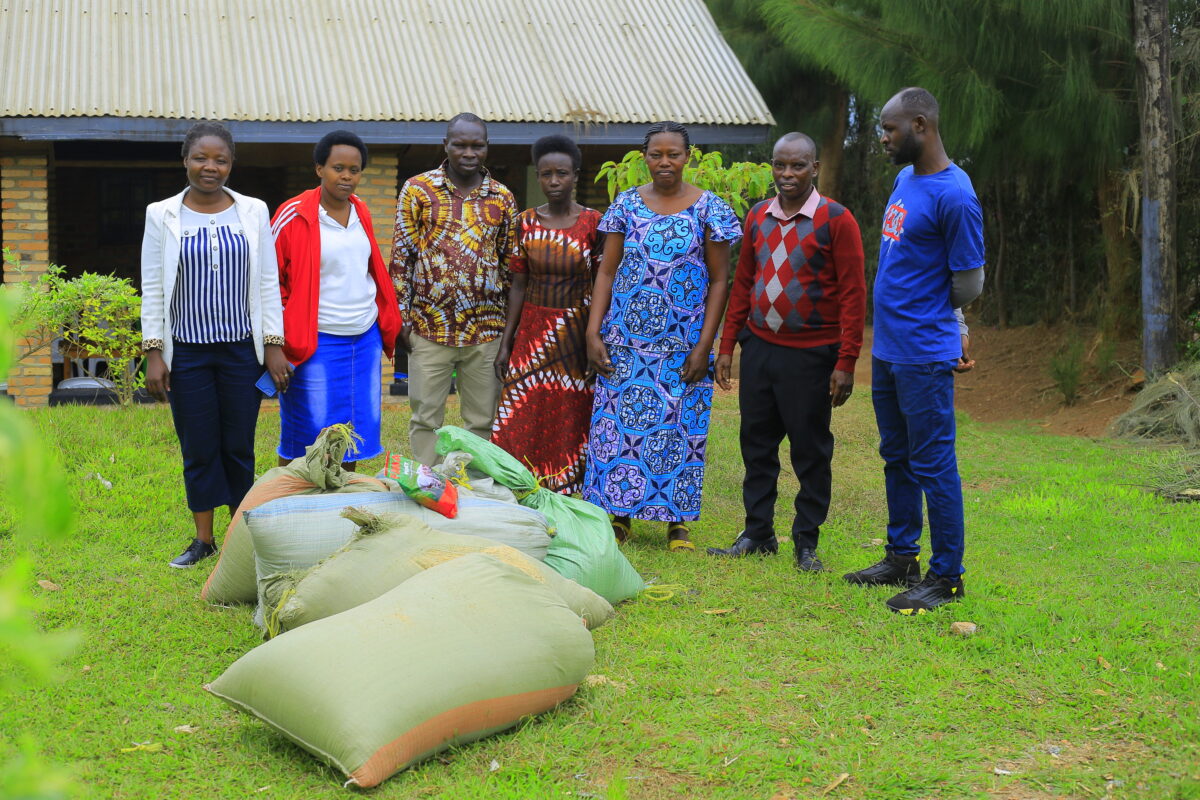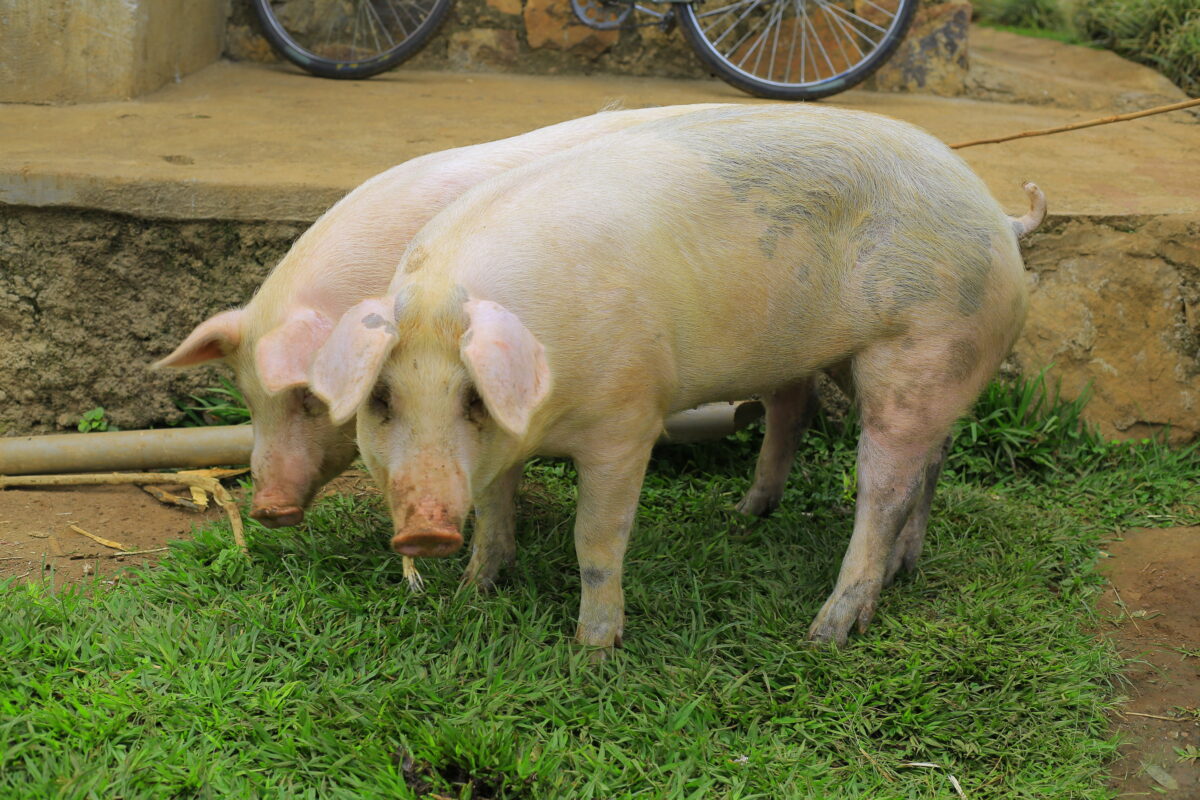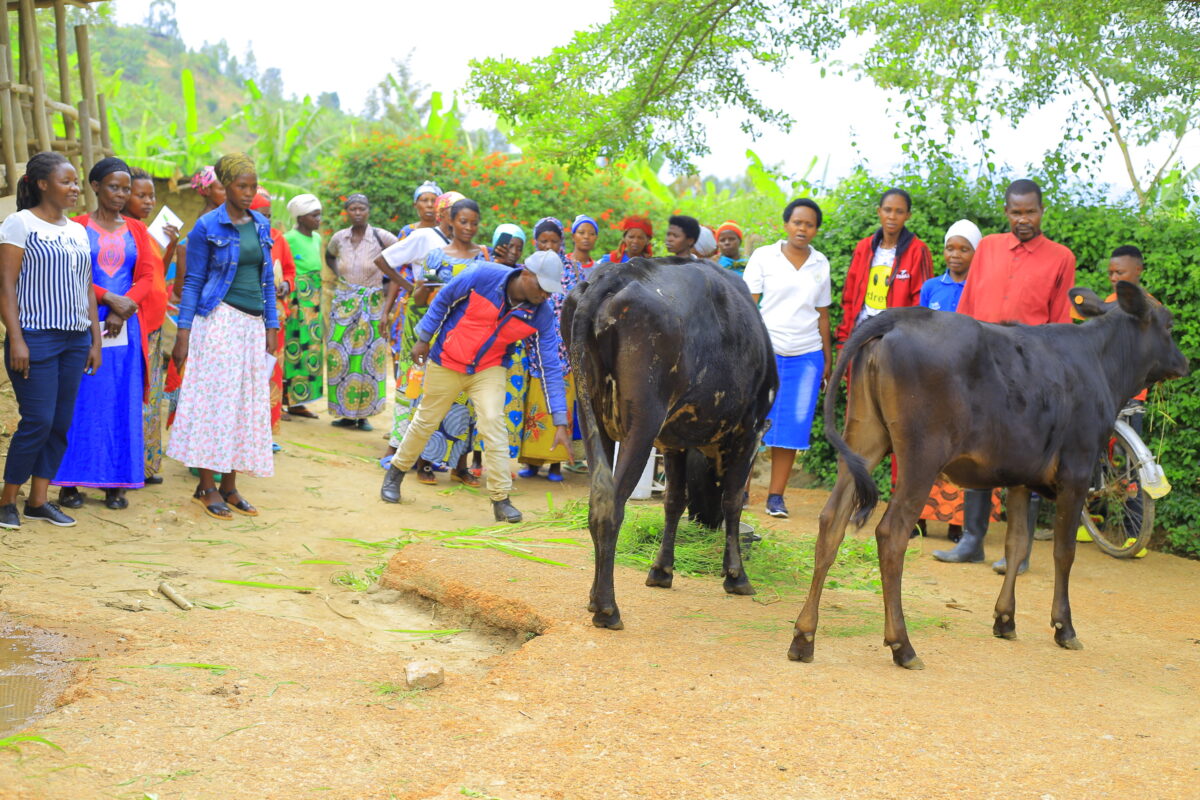Kamonyi- Fri 18 Oct 2024
In a significant step toward improving rural livelihoods, two women’s cooperatives namely Gihara and Kabuga have received valuable livestock support through a joint initiative by ARDE/KUBAHO and Medicus Mundi, as part of the ongoing Vitoria project. This initiative aims to empower women economically and enhance their agricultural productivity.
At Gihara, four pigs of the Randrass and Diroc breeds were provided, along with animal feed, to help the cooperative start or expand their livestock-rearing efforts. In Kabuga, two cows were donated—one of which has already given birth, while the other is 10 months old, soon to contribute to milk production.

Cows all fresh eating grass
Improving Livelihoods and Agricultural Productivity
This livestock support is more than just an economic boost. It is designed to uplift the cooperatives by providing both immediate and long-term benefits. The cows will produce milk, improving household nutrition and offering women an additional source of income from milk sales. Additionally, the manure from the cows and pigs will be used to enhance the fertility of the cooperative’s farms, boosting agricultural yields—especially in the greenhouses provided to them last year.

Kabuga cooperative members in all smiles after receiving both cows
By rearing pigs, the women’s cooperative at Gihara can generate a steady income that will not only improve their standard of living but also help them reinvest in their farming activities. This holistic approach is designed to provide financial stability, improve health, and strengthen food security.
Gihara cooperative after receiving pigs


They were also provided with food for pigs
A Project with a Broader Vision
The livestock distribution is one of many activities within the Vitoria project, which is implemented through a partnershipbetween ARDE/KUBAHO and Medicus Mundi to promote sustainable development and improve livelihoods in rural communities.
The project places a strong emphasis on supporting women through economic empowerment and sustainable agricultural practices, helping them rise out of poverty and build better futures for themselves and their families.
This initiative is a shining example of how targeted support, combined with community engagement, can make a tangible difference in improving lives and strengthening resilience in rural areas.
PICTORIAL






